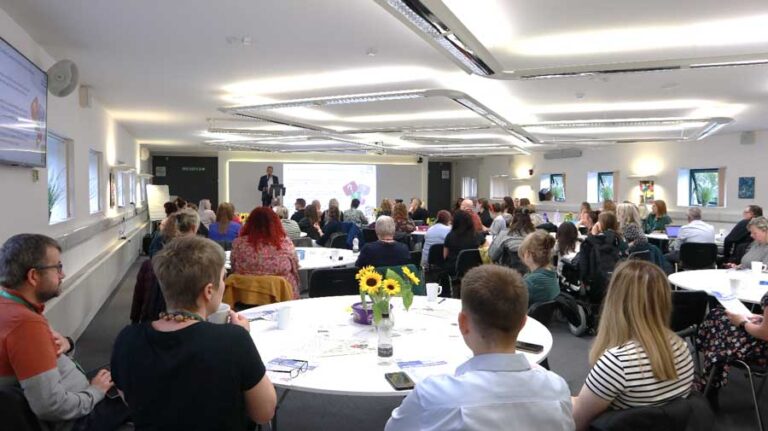Introduction
With the expansion of modern technologies, managing large-scale events such as conferences, exhibitions, and festivals has become a complex challenge. Event managers strive to address participants’ needs effectively using digital tools. The integration of technologies such as the Internet of Things (IoT), Artificial Intelligence (AI), Big Data analytics, and mobile applications has created new opportunities to design a “win-win” experience. For instance, recent research shows that top event managers adopt IoT technologies to ensure a positive experience for participants (360brightmedia.com).
This paper provides an overview of smart event management concepts and literature, examines relevant technologies and their advantages, discusses real-world implementation examples globally (and where possible, in Iran), and finally addresses challenges and proposed solutions.
Literature Review
Numerous studies have examined the potential of modern technologies in event management. For example, an industrial report showed that integrating mobile apps with IoT has ushered in a new era of event operations (irjet.net).
Several studies have proposed intelligent models where AI significantly improves attendee satisfaction. In one study, an AI-powered smart app enhanced user satisfaction in a global conference by up to 30% (jeahs.com).
Other research has emphasized the role of Big Data in enhancing decision-making among event managers, shifting them from “guess-based” to data-driven strategies through predictive analytics (globalmeet.com).
This body of literature collectively confirms that digital technologies can enhance both the efficiency and quality of event operations.
Technologies and Benefits
Internet of Things (IoT)
IoT enables event managers to collect and analyze environmental data in real time. For example, IoT-equipped sensors and cameras can monitor crowd density and movement across event venues (theeventcompany.com).
Using this data, organizers can make timely interventions to maintain safety and prevent crises. RFID and QR Code technologies simplify check-ins and registrations, significantly reducing wait times (360brightmedia.com).
Additional services such as smart parking notifications and indoor navigation using mobile apps and IoT sensors further enhance attendee convenience (360brightmedia.com).
Overall, IoT empowers smart crowd control, traffic management, and environmental monitoring (e.g., air quality and temperature) at events.
Artificial Intelligence (AI)
AI is primarily used to personalize the attendee experience and automate operational processes. Through machine learning algorithms and natural language processing, smart systems can identify user preferences and recommend tailored sessions and services (theeventcompany.com).
AI chatbots and virtual assistants improve customer service and guidance during the event. Facial recognition is also used for contactless entry and health screening.
Technical reports show that one event-tech company using an AI-driven platform reduced entry times by 70% and increased engagement by 40% (digitaldefynd.com).
Additionally, AI implementation reportedly improved visitor satisfaction by an average of 20% (digitaldefynd.com). A case study in Saudi Arabia found that an AI-based app designed for a project management conference boosted user satisfaction by 30% (jeahs.com).
Big Data
Large events generate massive amounts of structured and unstructured data (e.g., registration info, session attendance, surveys, social media inputs, and sensor data).
Analyzing this data helps extract insights and patterns that traditional methods cannot uncover.
With Big Data tools, planners can analyze session attendance trends and identify popular content.
For instance, examining the duration of attendance in a session can indicate its relevance.
Such insights shift managers from reactive to predictive approaches, enabling highly personalized attendee experiences (globalmeet.com).
Mobile Applications
Mobile event apps play a central role in smart event management. They typically offer access to event schedules, interactive venue maps, exhibitor lists, speaker bios, live updates, and features like polls and Q&A.
For example, a mobile app developed for Iranian trade exhibitions provides digital catalogs, exhibitor directories, and live updates to enhance the attendee experience (iranexpoapp.ir).
Smart notifications about schedules, changes, or personalized recommendations increase attendee interaction.
These tools improve satisfaction and facilitate seamless communication between organizers and participants.
Benefits
The benefits of implementing smart technologies in event management include:
-
Enhanced Attendee Satisfaction:
Personalized experiences based on individual data lead to more relevant session participation and positive impressions (digitaldefynd.com). -
Improved Safety and Crisis Management:
Real-time crowd monitoring and automated alerts enable rapid emergency detection and mitigation (theeventcompany.com). -
Higher Engagement:
Interactive apps, social networking features, and mobile gamification foster increased attendee participation (theeventcompany.com). -
Reduced Operational Costs:
Automation (e.g., e-registration, smart logistics) and accurate demand prediction lower errors and staffing needs (digitaldefynd.com). -
Optimized Resource Allocation:
Predictive analytics enable more efficient space, equipment, and staffing decisions (globalmeet.com). -
Environmental Sustainability:
Smart energy management, digital catalogs, and eco-friendly transport recommendations help reduce the carbon footprint (theeventcompany.com).
These benefits collectively elevate the user experience while improving event efficiency and safety.
Case Studies
-
Global Project Management Forum (GPMF 2025, Saudi Arabia):
An AI-powered app led to a 30% boost in satisfaction, 50% more engagement, and 60% higher post-event content access (jeahs.com). -
King Abdullah Cultural Center, Jubail (Saudi Arabia):
RFID tags and IoT sensors managed traffic flow and automated car guidance, improving access to the venue (irjet.net). -
Music Festival (Eventico Technologies, USA):
Leveraging AI reduced entry times by 70% and increased attendee engagement by 40% (digitaldefynd.com). -
Global Tech Conferences (ConferLink, UK):
A smart platform improved networking by 50% and attendee satisfaction scores by 35%, by suggesting sessions and connections based on user profiles (digitaldefynd.com). -
Iran Expo App (Iran):
An app for industrial and tech exhibitions provides digital catalogs, live news, and interactive venue maps to simplify the visit experience (iranexpoapp.ir).
These examples show that combining advanced technologies can drive tangible impact across security, logistics, interaction, and marketing.
Challenges and Solutions
Despite the significant benefits, smart event management faces several challenges:
-
Cost and Technical Complexity:
IoT and AI systems require substantial investment in hardware, network setup, maintenance, and skilled personnel (theeventcompany.com).
Staged implementation and cloud-based or shared solutions can reduce this burden. -
Privacy and Data Security:
Collecting large volumes of personal data (e.g., location tracking, consumption habits) raises serious concerns.
Encrypting data, securing networks, and complying with privacy laws (e.g., GDPR) are essential (theeventcompany.com). -
System Integration and Compatibility:
IoT devices and software may not easily work together.
Open protocols and modular architectures (e.g., standardized APIs) support smoother system integration. -
User Adoption:
Some staff and attendees may distrust or be unfamiliar with new tech.
Training, promoting digital culture, and clearly demonstrating benefits (e.g., faster check-ins) help overcome resistance.
With strategic management, use of certified systems, outsourcing technical aspects, or partnering with specialized vendors, many of these technical and organizational obstacles can be mitigated.
Conclusion
Smart event management, powered by communication and analytical technologies, improves efficiency, safety, and stakeholder satisfaction.
IoT enables real-time monitoring, Big Data facilitates predictive decision-making, AI creates personalized experiences, and mobile apps maintain continuous interaction.
Despite challenges like high costs and privacy concerns, case studies highlight the tangible value of this approach.
The future of event management lies in a hybrid of technology and human interaction, with innovation playing a central role in the evolution of the industry.
Resources:
-
Rashwan, Ghada. “From Insight to Impact (An AI-Powered Model for Smart Event Management…)” Journal of Educational and Human Sciences, 2025jeahs.com.
-
International Research Journal of Engineering and Technology (IRJET), V7, I4, 2020irjet.net.
-
DigitalDefynd Team. “AI in Event Management [10 Case Studies]” (2025)digitaldefynd.comdigitaldefynd.com.
-
Neoma. “Enhancing Crowd Management with IoT Sensors…” (ژوئن ۲۰۲۴)neoma.ai.
-
GlobalMeet Blog. “Data-Driven Event Planning: Using Analytics for Better Engagement” (۲۰۲۳)globalmeet.com.
-
The Event Company Blog. “Smart Cities, Smarter Events: The Future of Integrated Experiences” (۲۰۲۳)theeventcompany.comtheeventcompany.com.
-
360BrightMedia. “5+ Revolutionary Applications Of IoT For Event Management” (اکتبر ۲۰۲۳)360brightmedia.com360brightmedia.com.

